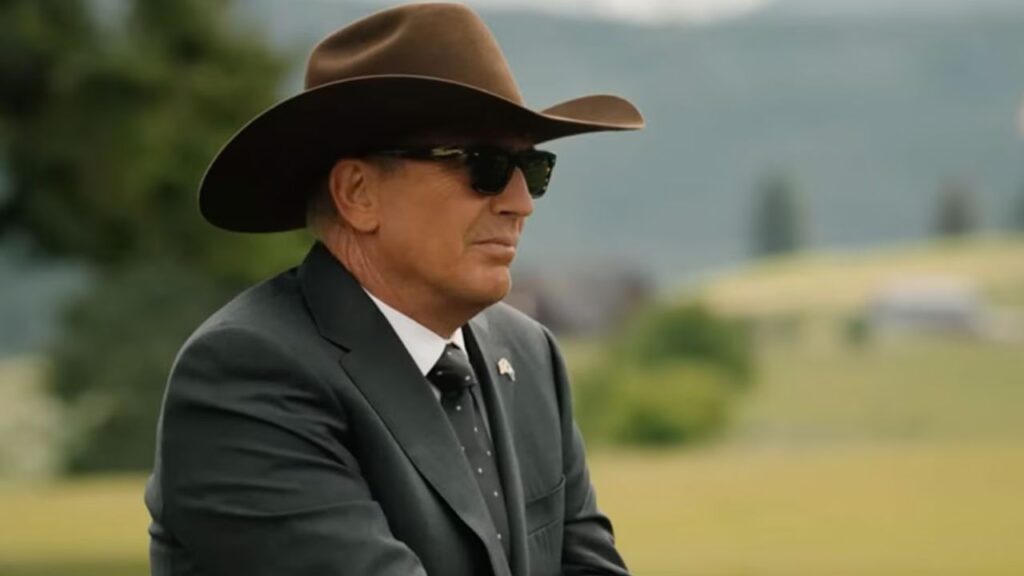When Yellowstone premiered, it exploded onto the television landscape as a bold, raw, and unapologetically dramatic exploration of family loyalty, land disputes, and the gritty survival instincts of those living on the fringes of America’s changing frontier. Taylor Sheridan was hailed as a visionary, crafting a narrative that seemed to breathe new life into the Western genre, and Kevin Costner’s portrayal of John Dutton anchored the series with gravitas and cinematic presence. Yet, as the seasons have progressed, a growing chorus of critics has begun to voice concerns that Yellowstone is less timeless than it initially appeared. Some reviewers have gone as far as to say it has “aged like milk,” claiming that its reliance on outsized stereotypes and melodramatic tropes has diminished its cultural relevance and narrative sharpness. Sheridan’s characters, once celebrated for their moral complexity and realism, are now accused of being caricatures on steroids: the ruthless patriarch, the unhinged daughter, the loyal ranch hand, and the manipulative corporate villain. While these archetypes initially created addictive television, the criticism suggests that Sheridan has leaned too heavily on them without offering the evolution or nuance needed to sustain longevity. The criticism doesn’t fall on Kevin Costner, whose performance has remained steady and commanding; instead, it falls squarely on Sheridan’s writing and creative direction. Some argue that the show’s thematic backbone—protecting the land and preserving a legacy at all costs—has been stretched thin across repetitive storylines, leaving the narrative bloated and predictable. Others point to Sheridan’s insistence on dramatizing masculinity in hyperbolic terms, painting ranch life as a battlefield of testosterone where every disagreement escalates into life-or-death stakes. For detractors, this approach sacrifices subtlety and risks alienating audiences who crave layered storytelling rather than sensationalized conflict. Moreover, in the years since its debut, the cultural landscape has shifted. What once felt like a refreshing, rebellious rejection of polished network dramas now risks appearing regressive in its depiction of gender roles, family dynamics, and morality. Beth Dutton, once seen as a fierce and groundbreaking female character, is now often critiqued for being reduced to a one-note embodiment of rage and trauma, a stereotype dressed in whiskey and sharp retorts. Similarly, the treatment of Indigenous characters, while initially framed as an attempt to confront historical injustices, has been accused of slipping into tokenism, where their narratives serve more as devices to amplify the Duttons’ struggles than as fully realized arcs in their own right. Sheridan’s ambition to sprawl Yellowstone into multiple spin-offs, such as 1883 and 1923, while commercially successful, has also drawn criticism for oversaturation, with some believing that the rush to expand has diluted the quality of the original series. What began as a tightly wound saga of one family’s fight for survival has, in the eyes of some viewers, unraveled into a franchise machine that prioritizes brand-building over storytelling innovation. Still, it would be unfair to dismiss the series entirely as a failure, because Yellowstone continues to command enormous ratings and enjoys a fiercely loyal fan base. Its visual grandeur, powered by sweeping shots of Montana’s landscapes, remains breathtaking, and Sheridan’s ability to capture the raw poetry of frontier life continues to resonate with millions. Yet, the question remains whether its legacy will be one of lasting cultural impact or a fleeting moment in television history defined by spectacle over substance. Sheridan has proven his talent for reinvigorating genres and telling stories that resonate with working-class, rural audiences who feel ignored by mainstream Hollywood narratives. The issue lies not in the intent but in the execution—whether he can adapt, innovate, and deepen his storytelling beyond the reliance on familiar stereotypes and explosive conflicts. The “aged like milk” critique underscores the danger of leaning too hard into formulaic drama: what feels thrilling in early seasons can quickly become tiresome without meaningful evolution. For Sheridan, the challenge is clear: to take the cultural juggernaut he has built and refine it into something that not only entertains but also grows with its audience. If he succeeds, Yellowstone could cement its place as a modern classic. If he doesn’t, it risks being remembered as a show that burned bright but faded fast, trapped by its own reliance on exaggerated archetypes. In the end, the debate over Yellowstone’s staying power reflects the broader tension in television between spectacle and substance, between immediate appeal and lasting relevance. Sheridan may have resurrected the Western, but whether he can keep it alive for the long haul remains the true test of his creative vision.